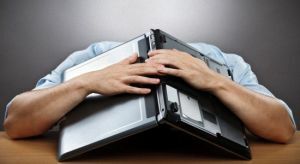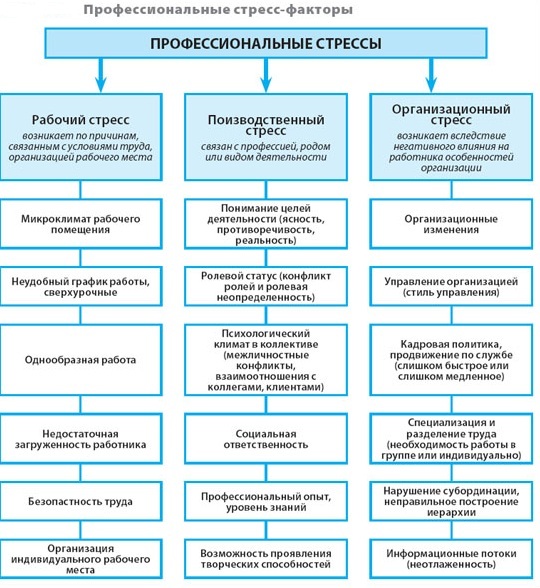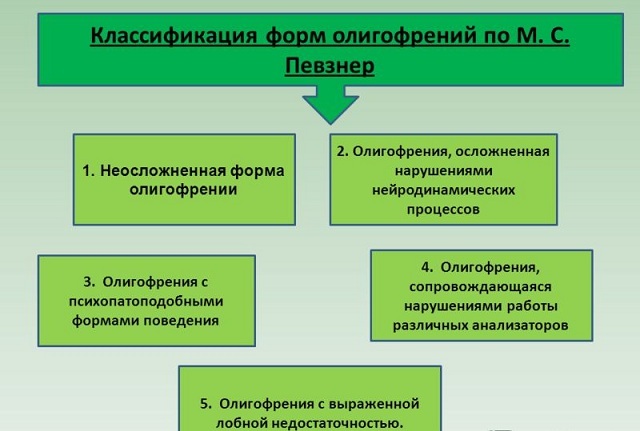 A person devotes most of his life to work. Lucky people who managed to find a personal destination and find a job, which gives pleasure, alas, a little.
A person devotes most of his life to work. Lucky people who managed to find a personal destination and find a job, which gives pleasure, alas, a little.
The bulk of people are exposed to the threat of occupational stress, which very often causes serious negative health effects.
Contents of
- Meet the stress!
- Kinds of professional stress
- Specialists of which areas are at a particular risk group?
- Where lies the root of the problem?
- How the emotional burnout develops
- Symptom groups
- How to increase the stress resistance of
- Control you, but not you!
- "cowards" you, and the CNS suffers
- Emotional stability is the number one task
Meet stress!
Stress is of English origin, meaning - load, tension, oppression. For the first time the state was described by Hans Selye in 1936, explaining that this is a normal human response to negative emotions, external influences, vanity. Scientists divide stress into positive - eustress and negative form - distress.
During an uncomfortable situation, the body emits adrenaline, which makes it necessary to seek a solution to the problem. In minimal doses, stress is useful to the soul, equating to the use of physical exercises for the body. It helps to maintain the ability to think, make decisions, and survive.
A large number of overvoltages causes loss of strength, weakness, worsens health, causes anxiety around the clock, drives a person into a corner.
Given that people are constantly under the influence of tense conditions of survival, physicians, psychologists, physiologists have carefully studied this condition. They argue that the feeling of a stressful situation is associated with a vascular, hormonal, nervous system. 
Stress in professional activity is also called production. It is expressed in the intense state of the employee, appearing against the background of emotionally-negative factors associated with the performance of work tasks. This type of stress is recorded in a separate graph of the International Classification of Diseases( ICD-10).
The physical or psychological factors that can cause a professional strain include the despotic director, competition, an overabundance of information, a small salary, and so on. It happens that a person does not separate existing problems from fictitious ones, winds himself up, independently provoking an intense state of mind.
Kinds of professional stress
The stress that arises in the workplace is divided into 3 groups:
- The information voltage arises with an uninterrupted flow of information when a person must make an important decision in an extremely short time. The situation is complicated by a high level of responsibility, lack of necessary information and a feeling that a person can not cope with the task.
- The communicative problems of are caused by problems in business communication, inability to formulate arguments, to refuse, to protect oneself from attacks or manipulation, ignorance of trickery.
- Emotional failures of appear during situations of feelings of humiliation, resentment, guilt, insolvency, uncertainty, threat. Negative impact of conflicts with leaders, the team, business partners. This kind of stress is transferred by the employee especially hard, as his values, self-esteem, principles collapse. This negatively affects the working and life spheres.

Specialists of which areas are at a particular risk group?
It is proven that the service sector, management activities, work in harmful or dangerous places are related to works having the highest voltage indicator.
According to the studies of psychologists at Manchester University, the following specialties are subject to work stress:
- miners - 8.3 points out of 10;
- policemen - 7.7 points;
- aircraft pilots - 7.5 points.
The lowest risk of working stress development is for librarians - 2 points. These professions are distinguished among 150 popular specialties.
With the advent of computer technology, work has gained more intense momentum, which is why employers emphasize stress-resistance.
Where lies the root of the problem?
The causes of stress at work are divided into personal and organizational factors, as well as the factors of the atmosphere in the team and the working conditions.
The personal characteristics include:
- low level of resistance and fighting external unfavorable factors, imbalance;

- the temperament of the choleric;
- low level of adaptation to the smallest changes;
- low self-esteem, self-doubt;
- perfectionism;
- personal problems that a person "carries" to work and others.
Collective problems include:
- interpersonal conflicts;
- the brutality of executives;
- competition and others.
Organizational stress moments include:
- uneven or unjust distribution of responsibilities, overload, large volume of tasks;
- after-processing;
- insufficient workload, with a meaningless "hanging out" of the clock;
- lack of motivation;
- inability to schedule time and others.
Description of unsatisfactory working conditions that cause stress:
- cold, heat, draft;
- insufficient lighting;
- small uncomfortable room;
- workplace inconvenience;
- accompanying distracting noise.
Leaders live in a constant voltage mode, which is why they often cause negativity in the team.

How emotional burnout develops
Emotional burnout-stress in professional activity develops according to the following scenario:
- The first stage is the build-up of tension .A person changes his habitual manner of behavior, which affects all life spheres.
- The second stage is the stress of .Decline of forces, low efficiency, loss of motivation, self-control, unconsciousness of actions.
- The third stage is the reduction of internal tension .A person as if awakens, habitual behavior returns, thinking, corrects the mistakes made.
Stages of stress are manifested in every worker in different ways, it depends on the individual characteristics of the person. The scenario depends on the following factors:
- susceptibility frequency - some are exposed to stress once a year with a monthly duration, others - once a week, but per day;
- manifestation form - aggressive behavior towards others or behavior unchanged;
- directionality of aggression - some people blame others for their troubles, and the second part accuses oneself, it is invisible to outside eyes "gobbling" themselves from within.
Symptom groups
There are 3 groups of symptoms of labor stress manifestation - somatic, emotional, behavioral.
The somatic symptoms include:
- sensation of a lump in the throat;
- irregular heartbeat;
- chest compressions, acute pain in this area;
- digestion and digestive disorders, abdominal pain;

- frequent urination, diarrhea;
- muscular tension, especially in the back and neck;
- headaches, migraines;
- skin rashes;
- slight tingling of the fingertips and toes;
- problems with vision, bifurcation of objects.
Emotional symptoms:
- frequent mood swings;
- lack of concentration;
- chronic fatigue;
- irritability;
- every second anxiety;
- aggression towards people;
- privacy in its "own" world.
Behavioral symptoms include:
- persistent complaints;
- indecisiveness;
- inattention;
- reduced performance, indicators;
- evasion of responsibility, dishonesty;
- work badges;
- problems with sleeping or waking;
- overeating / lack of appetite;
- long-term recovery after illness, trauma;
- abuse of alcohol, smoking, tranquilizers, sleeping pills.
How to increase the stress resistance of
To avoid and survive the stress that is overtaken in the workplace, you can follow the following rules:
- Watch for yourself .What sensations come in the first stage of stress? How long do you suffer discomfort or start with a half-turn? What happens when self-control is lost? Answers to questions will help you to know yourself, to learn self-control, to develop protection from stress.
- Find operating methods that can press the "brake" by stopping the .Leave the room, shut up, go to the window.
- If the voltage has occurred, it should be removed , sending energy to a pleasant business. Drizzle flowers, drink coffee, wash your hands, talk with a nice employee from another office.
- To understand what work processes are of interest, is a pleasure. Daily to give time to pleasant activities.
- During the voltage, concentration on breathing helps, disconnecting from the occurring .Watch your breath until it becomes calm.

Drive you, but not you!
Self-control and self-regulation technologies will help to protect and survive stress at work. It is necessary to learn to react to the difficulties correctly, so that they do not harm the health and mental state.
Initially, it is worthwhile to study yourself, to understand when the reaction to stress begins, then to choose effective methods that help neutralize negative emotions.
There are various anti-stress methods, including the use of pharmacological drugs, but you should choose an individual way to overcome stress in the working environment.
You can overcome difficulties by such methods:
- Switch the attention of , for example, go to the window, count past women passing by. The main thing is not to accumulate tension, returning to the unpleasant situation. Get your favorite photo with a picture of children or another image that recalls happiness.
- Social Participation of .Includes communication with pleasant people, help a colleague.
- Refer to the deep breathing or visualization technique of by presenting yourself at sea. You can beat in your thoughts a difficult situation in your favor, adding a drop of humor. For example, the director screams and suddenly emits gases, apologizes, leaves.
- Avoid unnecessary stress .To say "no" to the one who shifts his duties, to avoid a collision with the boss.
- Attitude to the positive .It is important to inform ourselves that there are no desperate situations, everything passes and God gives people only those difficulties that they can. There are many motivators and aphorisms to help wake up, smile and believe in the best.
- Change the situation .If you respond to rudeness, try to remain silent or vice versa. Decide to talk with the director about raising wages, etc.
- Adapting to stress and accepting that you can not change .Learn to see good moments in every event, taking advantage of it, experience. The boss is loaded with a large amount of work, which means that you are the reliable employee to whom this is on the shoulder. A scandalous colleague must be pitied, because her aggressive behavior speaks of personal psychological problems. The most difficult thing is to abstract from the negative.
- Exercise removes the strain of .Even if there is no way to do the warm-up, you can move your fingers, move your neck, do exercises for the eyes.
- The best way to overcome stress is to rest .The body needs regular short breaks, during which it is possible to go to the toilet, dream, relax on a chair, get out of the office and call your own person. In non-working hours, try to move more, lead an active lifestyle, do what is pleasurable.

How to deal with stress at Work:
"cowards" you, and the CNS suffers from
Central nervous system failure entails depression, depression. Frequent stresses kill a person's ability to resist them, the result will be a prolonged depression, which is difficult to get rid of without the help of specialists.
A person with failures in the central nervous system withdraws, closes, lives in constant apathy and impotence, can have inadequate behavior, decide on suicide. In parallel, there are problems with health, in particular, with the heart and stomach. Sometimes stress causes malignant tumors.
Emotional stability is the number one task
Prevention of occupational destruction is easier and better treatment of stress. So, to avoid stress at work, you can, if you follow such advice and rules:
- to change attitudes towards work and colleagues, - build trust relationships with management, colleagues, celebrate holidays, respond to requests for help;

- make an appointment for trainings that help to increase stress resistance, learn to act in unforeseen situations;
- interrupted by gymnastics, tea;
- organize working hours without overestimating its own capabilities;
- to increase self-esteem, believe in success;
- find your own motivator;
- does not carry the work home;
- have a rest, get enough sleep;
- learn to deny those who use kindness.
If work is not fun for many years, perhaps it's time to change it? It is not necessary to pursue your whole life for money all your life, not to make all of them.



